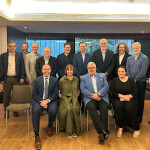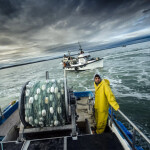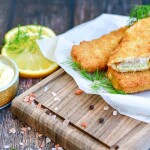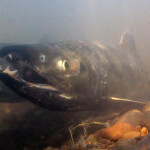St. Helena, a volcanic island located in the Southern Atlantic Ocean, has partnered with the International Pole & Line Foundation (IPNLF) to launch a one-by-one tuna fishery intended to increase the sustainability of the island’s catch.
The island, a British Overseas Territory and one of the most settled islands remote in the world, has a maritime zone of 172,439 square miles of open-ocean habitat. However, according to the IPNLF, its fisheries are at risk of being overfished by foreign fishing vessels.
In response, the island’s government and its fisheries corporation has paired up with IPNLF to establish a conservation area throughout the entire St. Helena maritime zone “To shield a vast ocean area from harmful fishing activities and provide valuable protection for the local community’s low-impact, socially responsible tuna fisher,” according to the group.
“While many small island countries and territories have committed to partial no-take areas, this will take marine conservation to another level entirely,” Stephane Weston, business manager and COO of the St. Helena Fisheries Corporation, said. “Not only will the project provide a lifeline to St. Helena, it is also an opportunity to define how fisheries should operate in the 21st century – a fully safe, sustainable and environmentally friendly fishing industry that is locally owned and operated. This project will also make a significant contribution to the local economy by producing high quality products for sale on the island and for export.”
Over the next three years, the partnership will seek to a ban on all destructive fishing gear and to enhance management and strengthen monitoring, control, and surveillance with the goal of preventing illegal fishing.
“The project will contribute significantly to local aspirations for the fisheries sector to improve collaboration and working smarter together for the benefit of St. Helena’s current and future maritime users and beneficiaries,” Derek Henry, the Acting Director for the Environment and Natural Resources Division of the St. Helena Government, said. “As an indication of our commitment to this project, the government and local stakeholders have already agreed to ban longline fishing for the duration of this project.”
The project is being supported by Oceans 5, an international collaborative of philanthropic donors with the goal of supporting coastal communities.
“As an international organization that is working to develop and demonstrate the value of one-by-one tuna fisheries to coastal communities, IPNLF is extremely passionate about this project,” IPNLF Director of Policy and Outreach Adam Baske said. “The key to its success will be ensuring the fishing communities and the island as a whole benefit from these commitments as we propose to do just that. We also believe that promoting the groundbreaking policies that St. Helena is prepared to implement will put a spotlight on all such fisheries – further impressing upon suppliers, retailers and consumers everywhere the importance of making smart seafood choices, while making St. Helena a global inspiration to like-minded governments and other large ocean states.”






